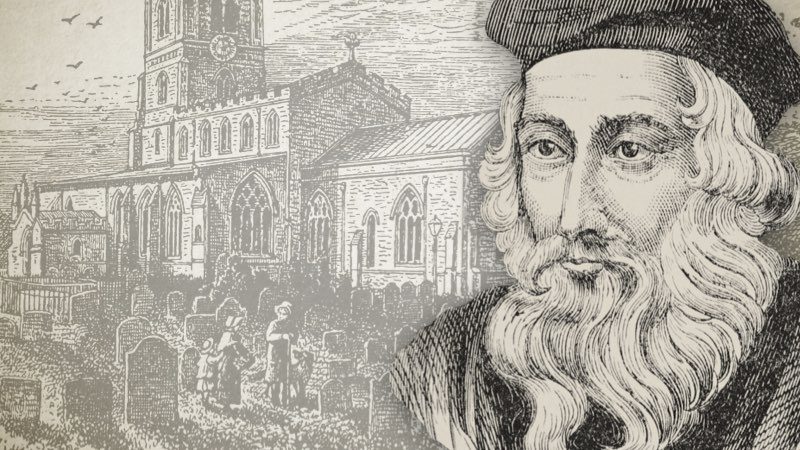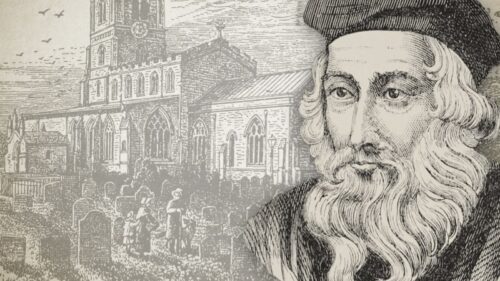John Wycliffe
John Wycliffe (1320-1384) was an ordained Catholic priest and seminary professor at the University of Oxford. After his conversion to Christ, he led a movement which questioned the legitimacy of the Catholic Church, including many of its practices and teachings such as the Papacy, masses, transubstantiation, monasticism, veneration of saints and the elite status of the clergy. He became a leading voice for evangelical Christianity in England, paving the way for the Protestant Reformation of the 16th century. It is for this reason he has been called the “Morning Star” of the Reformation. One of his most important achievements was the translation of the Latin Vulgate into Middle English, completed in the early 1380’s.
-
The Life And Ministry Of John Wycliffe
John Wycliffe is rightly called the Morning Star of the Reformation. In God’s Providence, he was the man who inherited the apostolic gospel of salvation in Christ as described in the doctrines of grace. He was elected by God to build on the work of Englishmen such as Greathead and Bradwardine and pass it on to Continental men of God such as John Hus, Jerome of Prague and Martin Luther. Besides this, he laid the exegetical and spiritual foundation for the British Reformation. Indeed, one can say that, in God’s good plan for the sixteenth century Reformation of the Church, all roads lead to the life and works of John Wycliffe. As Wycliffe was more thorough-going than many of his reforming successors, it will benefit…
-
The “Morning Star” Of The Reformation
John Wycliff (1320-1384) For a century or more before his birth numerous problems arose in England which were contributing factors to John Wycliffe's ecclesiastical non-conformity. Due to his power-struggle with Pope Innocent IIl. King John I in 1213, yielded feudal sovereignly to the Papacy. That situation proved to be a very great detriment to England. As a result of that agreement between king and pope, 12,000 English pounds were annually taken from the English coffers and sent to the Papal See at Rome. Furthermore, large numbers of foreign ecclesiastics were brought into the British Isles. Those alien clerics, who owed greater allegiance to the Papacy or their native lands than they did to England, swarmed all over the nation and even infiltrated into some of…



